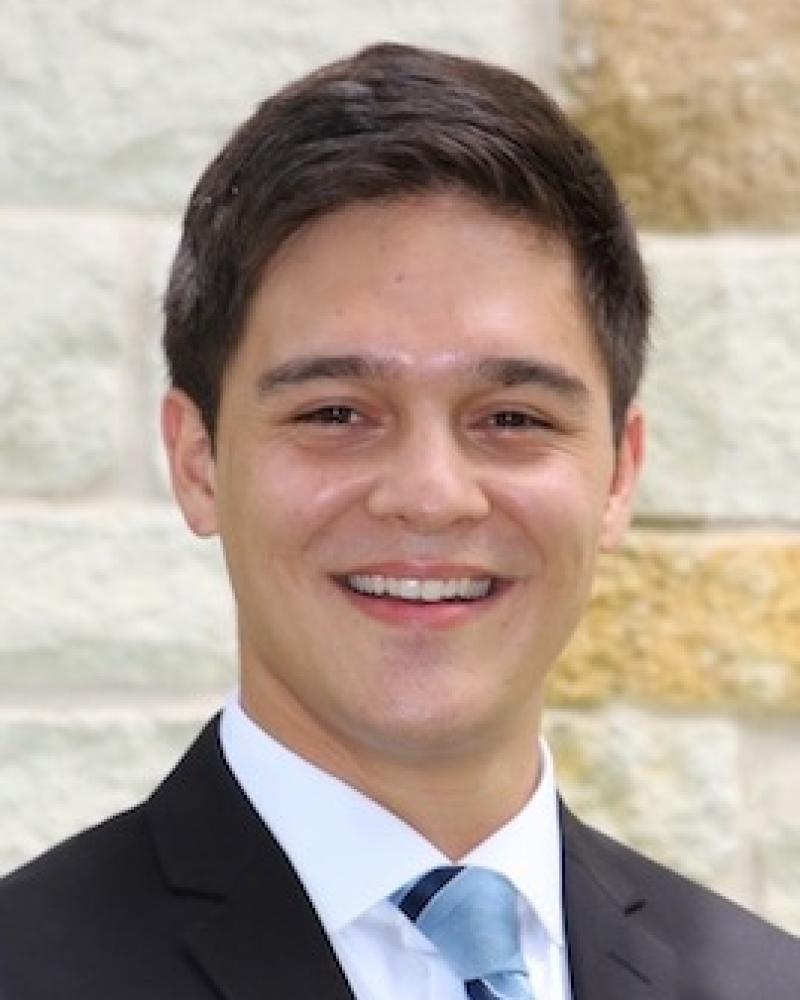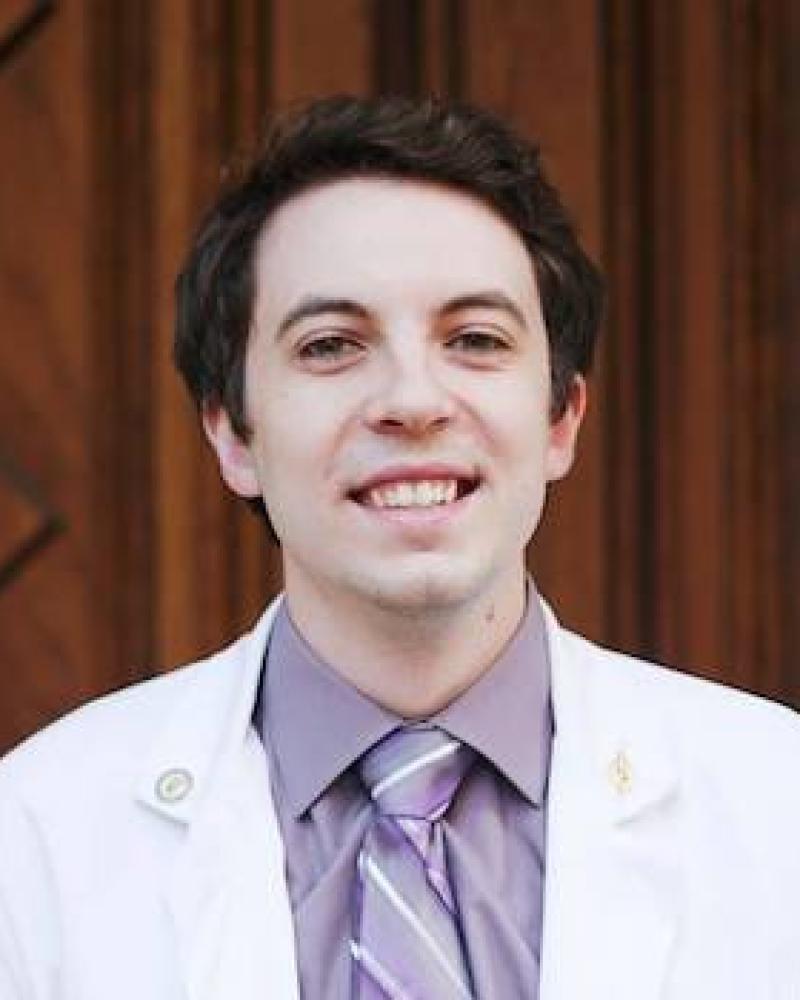Interprofessional Practice in Action
UT faculty and students share their experiences working on interprofessional teams to transform health care culture.
Students Launch an Interprofessional Committee to Transform Health Care Education
By Adam Burkhard and Sam Baldazo
July 23, 2020
CHIPE interviews Adam Burkhard, a 4th-year pharmacy student, and Sam Baldazo, a 4th-year medical student, who answer questions about their respective experiences launching the Student Health Interprofessional Practice and Education Committee, the 1st of its kind at UT Austin, and why they were compelled to mobilize and grow IPE among health professions students. CHIPE, this committee's advising body, is grateful for their leadership in launching this committee and looks forward to student leaders from all UT health professions being represented.
Why did you start the Student Health Interprofessional Practice and Education Committee (SHIPEC)?
AB: Interprofessional collaboration is the future of health care. Although UT Austin's Center for Health Interprofessional Practice and Education (CHIPE) is making great strides in advancing health interprofessional practice and education (IPE), health profession students also have a responsibility to advance CHIPE's mission. Establishing SHIPEC is one way in which students can support CHIPE and promote organic opportunities for health professions students to collaborate outside of the classroom. SHIPEC hopes their efforts in support of CHIPE will better prepare graduates to work collaboratively across professions for the betterment of patient care.
SB: I want to give full credit to Adam for taking the initial lead on this project. Much of what we've done comes from his vision. Why I was brought in and what I contribute is my passion for interprofessional collaboration. The longer I'm exposed to working in health care, the more I understand that none of us can accomplish the outcomes we want without a team of various educations and diverse backgrounds. To that end, I joined into this project to create the committee so we could further our interactions as professionals. I want our schools to be able to coordinate opportunities for all students to learn, work, and interact with people of various health educations. The more we can interact, the more able we will be to work together as future professionals.
Why is IPE important to you and your respective profession?
SB: No matter how educated or skilled, a person cannot create the same outcomes for the patient that a well-trained team can accomplish. Working as a team, we can accomplish things previously unbelieved, but we can also continue to provide high value care to individuals on a day-to-day basis. Every clinical encounter is dotted with different interactions and professionals who contribute to a whole outcome for a patient, and the better our students are interacting with those other professionals, the better that whole process will function. My passion and training is in value based medicine, so my perspective largely surrounds bringing the optimal outcome to the patient. In order to do that, we need teams of individuals who operate together at a high level.
AB: IPE first and foremost is about serving people. Studies have proven and continue to prove that interprofessional collaboration improves health outcomes. Educating health profession students about intercollaborative practice at the start of their professional careers is crucial for catalyzing the transformation of our healthcare system. For pharmacy specifically, the last ten years has rapidly shifted our practice. Although historically operating in a silo, pharmacists are gaining recognition for their valuable contributions to healthcare teams as the medication experts. IPE prepares our pharmacy graduates to continuously seek opportunities to collaborate across professions for the benefit of our patients.
Which professions will be represented on this committee? What are you looking for in a student representative?
AB: The committee hopes to represent all health professions that directly impact patient care. This can include, but is not limited to: medicine, nursing, social work, pharmacy, nutrition, optometry, dentistry, physical therapy, physician assistants, occupational therapy, public health, healthcare administration, and the like. We currently have representation from medicine and pharmacy and hope to include nursing and social work starting in Fall 2020. Any student serving as a representative needs to demonstrate a passion for improving patient care, humility to learn with and from others, and a dedication to expanding health IPE opportunities for students.
SB: We are planning to launch with 4 health programs at UT: medicine, pharmacy, nursing, and social work. As time goes on, we'd like to build stronger relationships with other health and health-related programs. We are looking for student reps who see how teamwork can allow for us to create remarkable health systems and who will work with us to create opportunities for students to interact in ways that will prepare them for such teamwork in the future. One of the things that Dell Medical School looks for in their students is a person who wants to be "a physician and..." What that "and" is can be up to the student; it can be researcher, advocate, leader, administrator, and so on. Those are the types of people we look for in this committee: the people who want to receive their education in a health field AND work on how we interact as professionals to create a higher functioning interprofessional team.
Where do you hope this committee will be in 2 years?
AB: I have two overarching goals for SHIPEC that can be summarized in two words: representation and impact. In two years I hope to see increased representation, especially from professions outside of medicine, nursing, social work, and pharmacy. The more representation we have on the committee, the larger our audience and the larger our impact. This leads to my second goal, expanding their impact. In two years I hope to see SHIPEC sponsoring at least two health IPE events each semester with attendance from all health professions represented on the committee. Additionally, I hope they will facilitate the selection of an interprofessional team to represent The University of Texas at Austin at the CLARION National Case Competition hosted annually by the University of Minnesota. Coordinating a local case competition to identify a team would be another great way to expand our impact.
SB: In two years, we hope that this committee will have representatives from all health professions programs and will host interactive learning opportunities that are well-attended. I also hope the committee will create distinct opportunities for students within a particular program to be able to 'recruit' students from other professions to join them on initiatives to diversify the expertise and improve the quality of projects.
CHIPE is the advising body of the SHIPEC. If you have any questions or comments for the SHIPEC, please email us here.
SHIPEC's Mission:
Lead interprofessional student forums to advance collaborative learning and scholarship and promote team-based, person-centered health care within the health care and health care-related professions.
Student Leaders

Sam Baldazo

Adam Burkhard